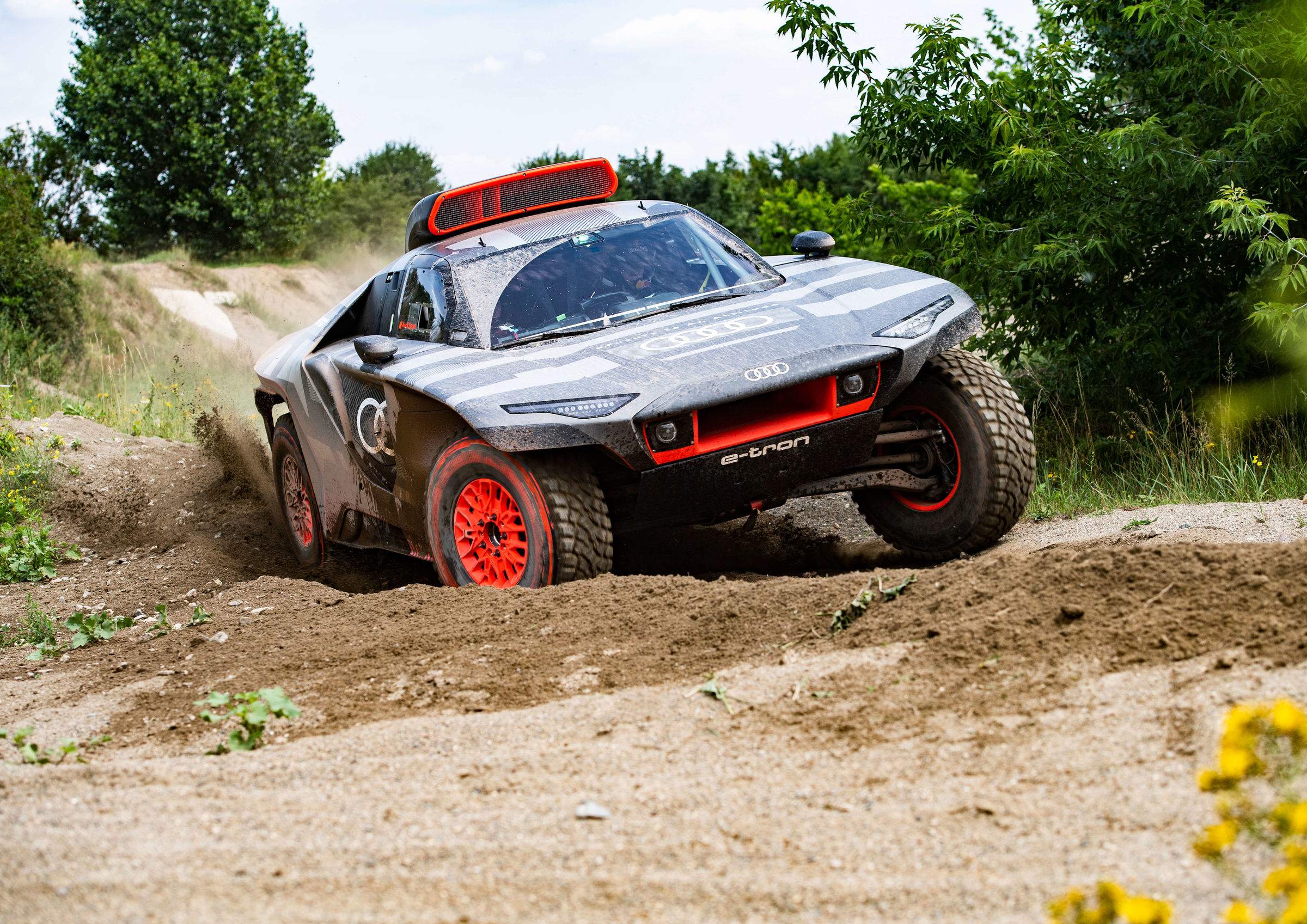On July 23, 2021, Audi announced the RS Q e-tron, which will compete in the Dakar Rally in January next year. Audi Sport, Audi’s sports department, will work together with the racing car manufacturer Q Motorsport to develop the new racing car.
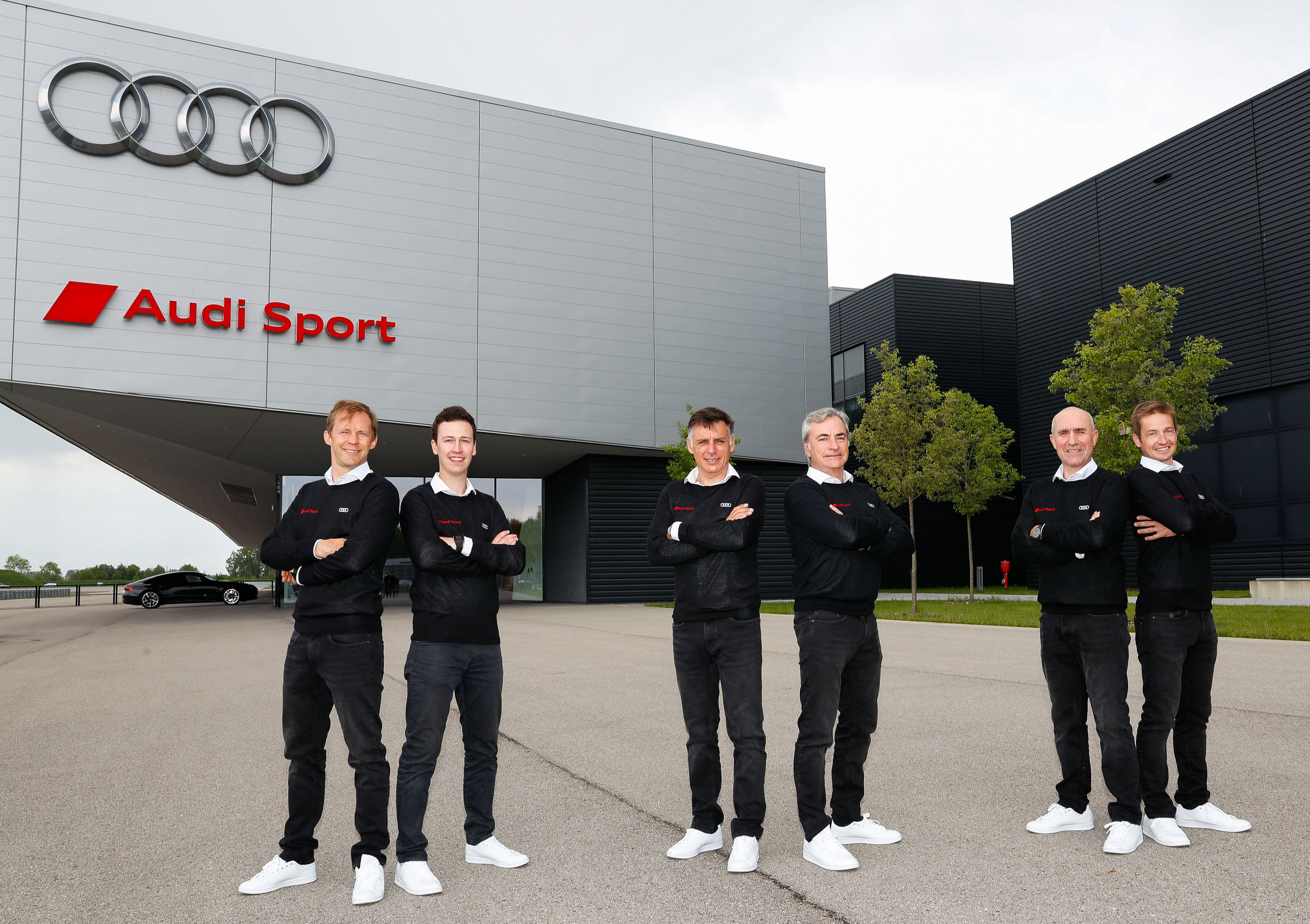
The relatively unknown Q Motorsport is actually a force to be reckoned with. Its founder, Sven Quandt, is a successful businessman and rallying driver. He founded X-raid, which has been a key contributor to BMW’s recent successes in rallying. Q Motorsport, a racing service company parallel to X-raid, boasts a star-studded driver lineup.
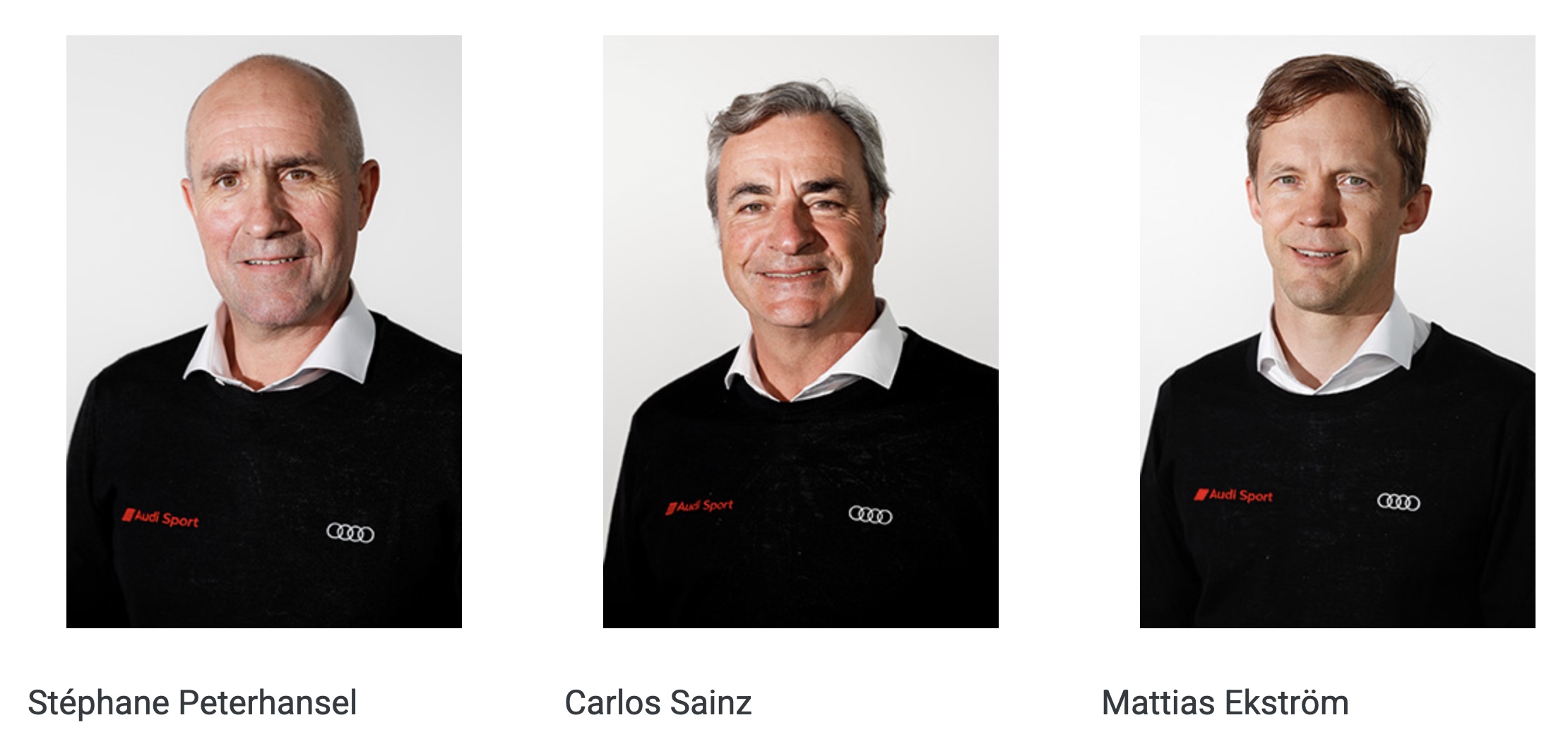
French driver Stéphane Peterhansel has won a total of 14 Dakar Rally championships, including 8 motorcycle championships and 6 car championships. Spanish driver Carlos Sainz is a two-time WRC champion and a three-time Dakar Rally champion. Swedish driver Mattias Ekström has been a long-time driver for Audi and has won two DTM championships.
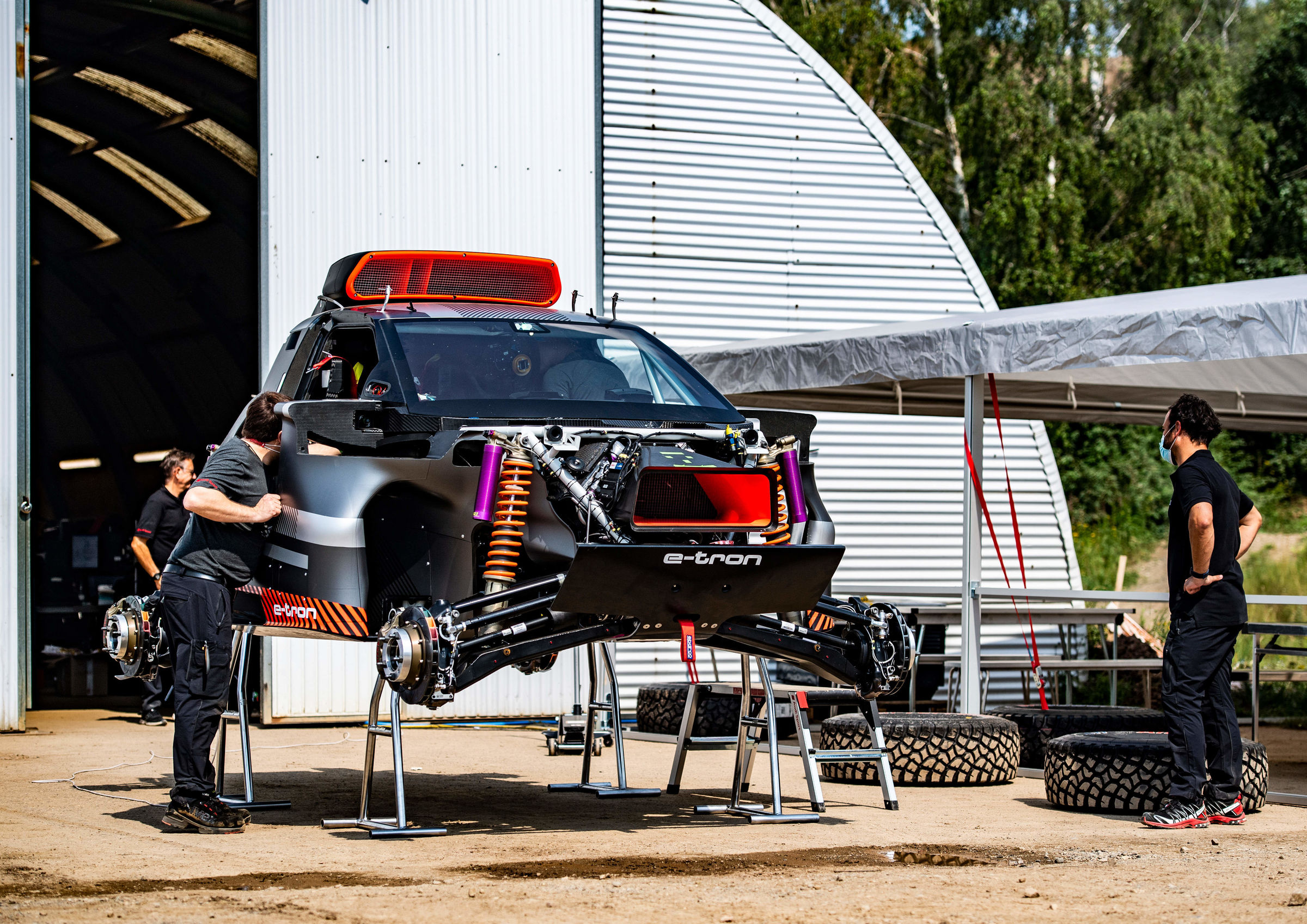
Of course, the RS Q e-tron, as a factory car, is full of high-tech features, and Audi hopes that it will become a technical test bed and provide valuable experience for future production cars.

According to Audi’s slogan “Vorsprung durch Technik” (Advancement through Technology), the RS Q e-tron, which is built from scratch, is an extended-range rally car. The electric drive will bring powerful low-end performance and fully independent front and rear axle power distribution capability.
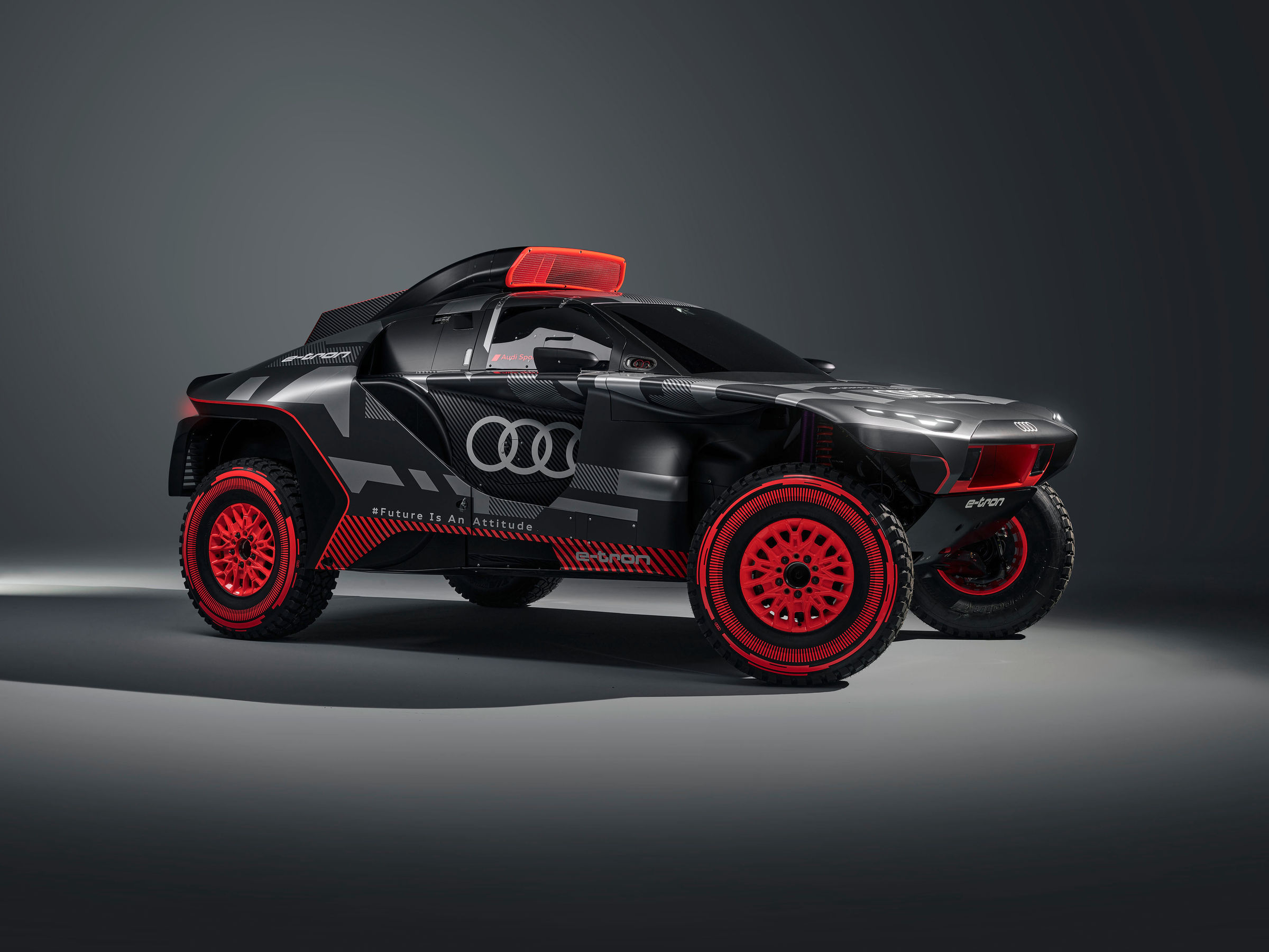 Currently, Audi has achieved a 97% energy usage rate in Formula E, and the front and rear axles of this UFO-shaped rally car also use the same electric motors from the Audi Formula E car, with some minor adjustments for the Dakar Rally. The generator unit consists of a combination of the TFSI engine from the DTM car and the third identical FE motor, operating in the most efficient range of 4,500-6,000 rpm, consuming 200 g of fuel per kWh.
Currently, Audi has achieved a 97% energy usage rate in Formula E, and the front and rear axles of this UFO-shaped rally car also use the same electric motors from the Audi Formula E car, with some minor adjustments for the Dakar Rally. The generator unit consists of a combination of the TFSI engine from the DTM car and the third identical FE motor, operating in the most efficient range of 4,500-6,000 rpm, consuming 200 g of fuel per kWh.
How to understand this efficiency? Assuming the energy consumption of this car is 20 kWh-30 kWh per 100 kilometers, the fuel consumption per 100 kilometers of this race car is at the level of 5.5-8.5 L. The 370 kg 50 kWh battery pack is specially designed for this race car. The maximum system output is 500 kW, but Audi is still working with the Dakar organizers to evaluate the specific output allowed in the race.
The Dakar Rally takes two weeks to complete, with a single day’s race covering up to 800 km. Can the extended-range powertrain system overturn the traditional dominance of internal combustion engines in long-distance off-road rallies under such testing conditions? Let’s wait and see.
🔗 Source: Audi
This article is a translation by ChatGPT of a Chinese report from 42HOW. If you have any questions about it, please email bd@42how.com.
